CHINA has emerged the big winner out of this week’s meeting of Asia’s leaders. The forum sidelined international efforts to challenge Beijing’s growing control over the South China Sea.
China’s state-owned media has boasted that the forum’s official statements represent “a slap in the face” to recent attempts by the Philippines’ to oppose its expansive ‘nine-dash line’ territorial claims.
Australia’s Foreign Minister, Julie Bishop, joined the Asian and Pacific nations gathered in Laos for wide ranging regional discussions. But the elephant in the room was China’s growing dominance over the international waterway which is a vital hub of commerce and natural resources.
The international Permanent Court of Arbitration earlier this month found Beijing’s assertion of sovereignty over what is almost the entirety of the South China Sea to be illegal.
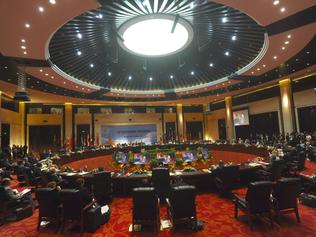
Beijing has rejected the ruling, declared the court has no jurisdiction over the matter and vowed to pursue ownership over the waterway which it says it has owned since ancient times.
That the Association of Southeast Asian Nations (ASEAN) failed to formally address the court’s ruling is a significant success. But Beijing also scored a second major win.
ASEAN’s leaders recommitted to a 2002 dispute resolution agreement which excludes international parties.
“If (the US, Japan and Australia) truly wish for stability in the South China Sea, they should support China and the ASEAN in implementing the Conduct of Parties in the South China Sea (agreement), support the resolution of disputes through consultations and negotiations by sovereign states directly concerned,” China’s Foreign Minister Wang Yi told Beijing media.
“It is time to show who they really are, whether they are the peacekeepers or troublemakers.”
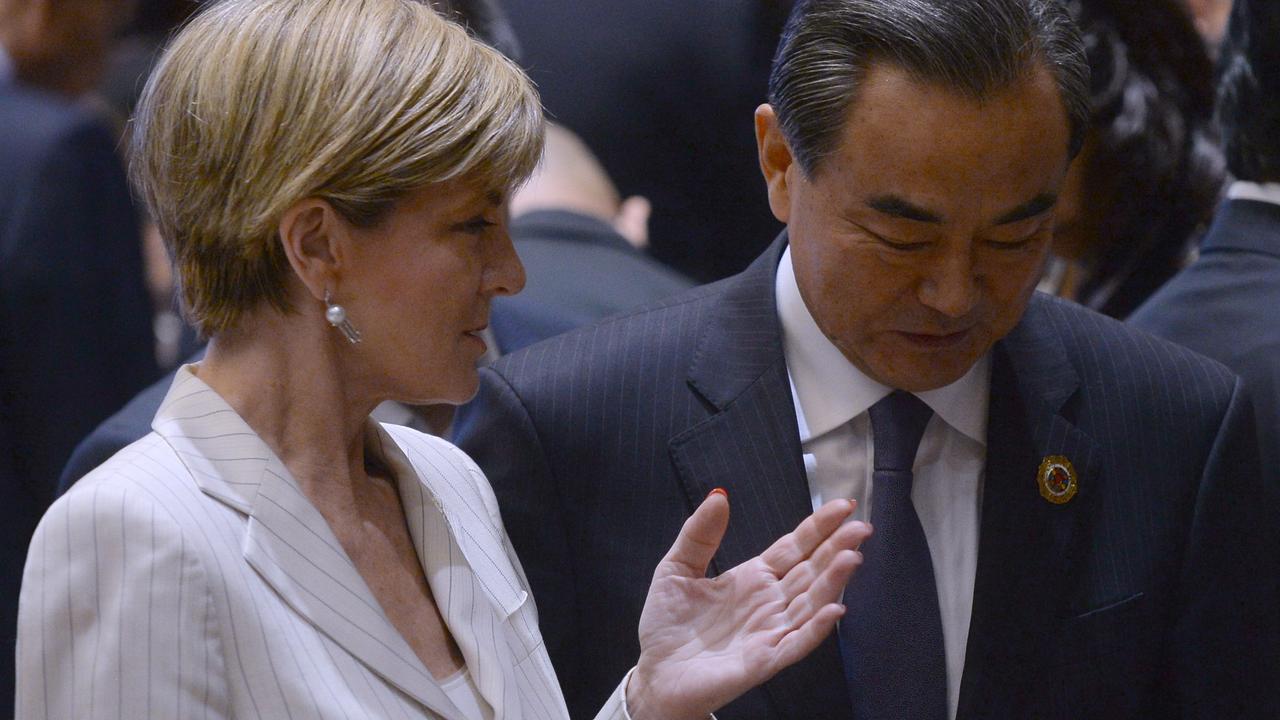
WORD GAMES
ASEAN leaders were deadlocked in their debate early this week, and the forum was forced to go into an emergency session before any agreement could be reached.
Cambodia reportedly took up Beijing’s flag with enthusiasm, arguing insistently that nothing be said that may even be remotely perceived as a criticism. Behind the scenes, Beijing’s diplomats were also hard at work.
They were successful. No mention of the international court’s ruling was made.
“The ASEAN nations do not wish their ties with China to be affected by the disputes between China and the Philippines. Many agreed that it was taken too far and should be properly controlled and resolved between the two countries,” an English-language outlet of the government-run People’s Daily newspaper reported.
But the diplomatic implications go far beyond just the Philippines. China is asserting its claims to reefs and shoals over nations including Vietnam, Malaysia and Brunei.
It’s a major destabilisation for an area that is essentially in Australia’s backyard.
Eventually ASEAN agreed to two documents: a two-page Joint Statement and a 31-page Joint Communique.
The South China Sea dispute was covered by just eight paragraphs.
“We remain seriously concerned over recent and ongoing developments and took note of the concerns expressed by some ministers on the land reclamations and escalation of activities in the area, which have eroded trust and confidence, increased tensions and may undermine peace, security and stability in the region,” the Joint Communiqué read.
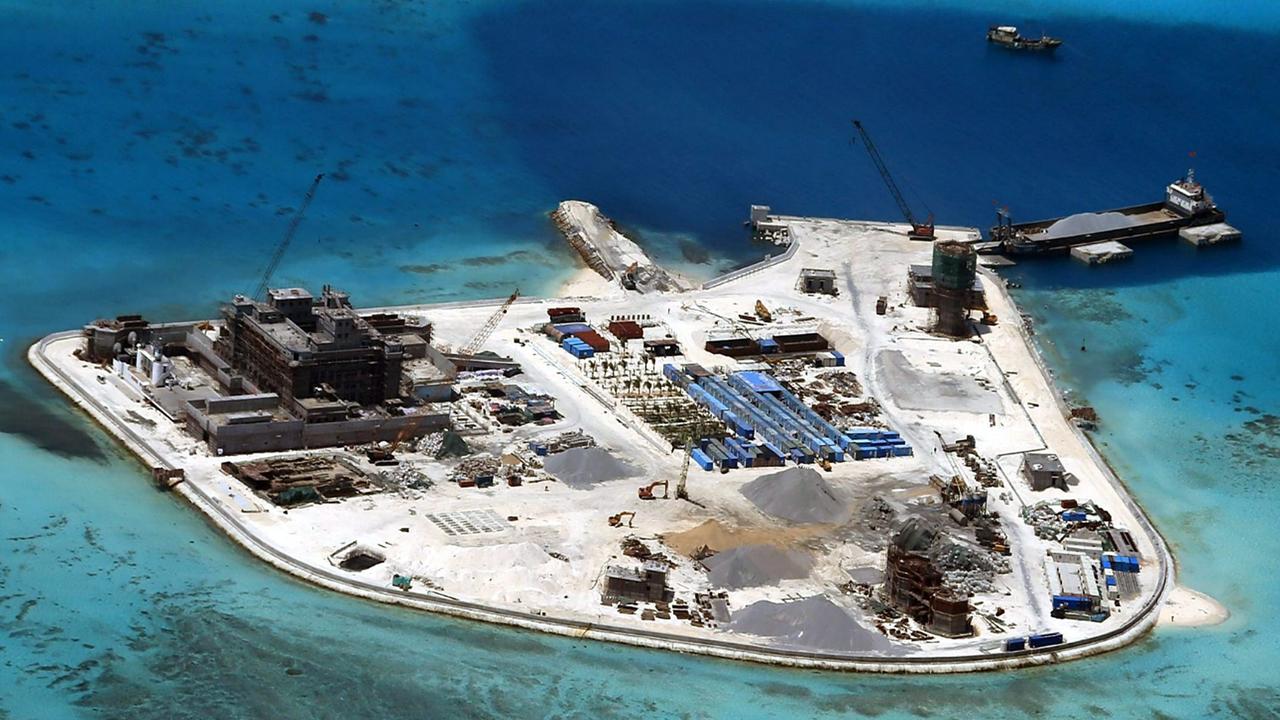
LINES IN THE SAND
During the ASEAN gathering Ms Bishop engaged in bilateral talks with nations including India, Indonesia and the Philippines. She also spoke with US Secretary of State John Kerry and Japanese foreign minister Fumio Kishida.
Ms Bishop is yet to discuss ASEAN’s outcomes with media.
Instead, a joint statement issued by the three allies openly rebuked Beijing.
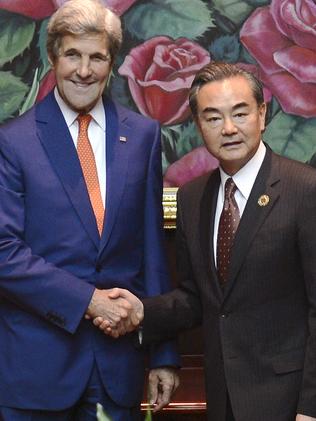
“The ministers (of Australia, Japan and the US) expressed their serious concerns over maritime disputes in the South China Sea. The ministers voiced their strong opposition to any coercive unilateral actions that could alter the status quo and increase tensions,” the joint statement reads.
The document went on to assert that the international court ruling “is final and legally binding on both parties.
“The ministers stressed that this is a crucial opportunity for the region to uphold the existing rules-based international order and to show respect for international law.”
Beijing has rejected the statement.
“This trilateral statement came at a highly inappropriate time and conforms in no way with the development of the situation,” Chinese Foreign Minister Wang said.
ASEAN addressed the island building issue by urging nations to “exercise self-restraint in ... inhabiting on the presently uninhabited islands, reefs, shoals, cays, and other features.”
But Beijing does not believe this refers to it.
Minister Wang said the land reclamation projects mentioned to in the communiqué belonged to “a different country”.
“China is not the one reclaiming land right now,” he said.
He also said attempts by ‘a certain country’ to have ASEAN address the issue of militarisation and large-scale island building projects in the South China Sea had been rebuffed.
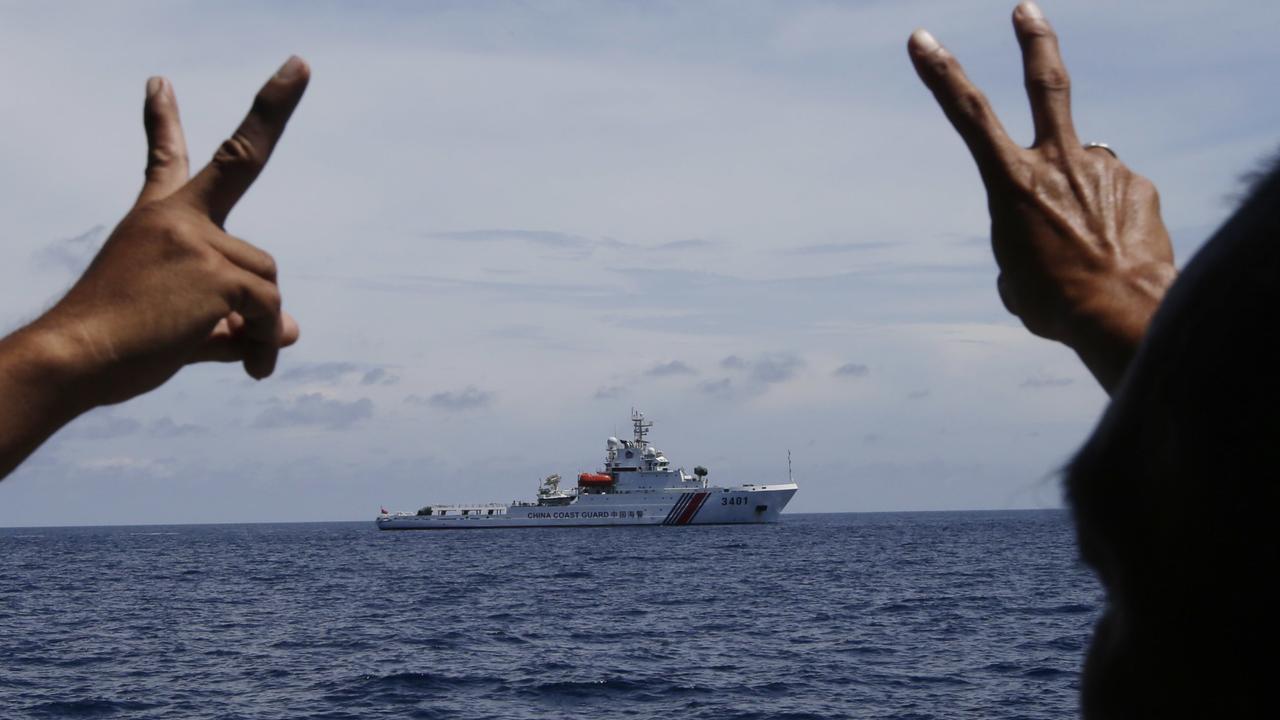
PARTING THE WATERS
Diplomatic efforts by Australia and the US have not been entirely without success.
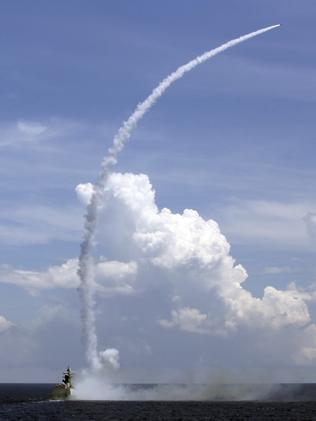
That international law and the United Nations Convention on the Law of the Sea were mentioned at all is significant.
“The parties concerned undertake to resolve their territorial and jurisdictional disputes by peaceful means, without resorting to the threat or use of force ... in accordance with universally recognised principles of international law, including the 1982 UNCLOS.”
But ongoing escalations of tensions in the South China Sea seem inevitable.
It’s the rejection of international interests that is at the heart of Beijing’s ASEAN diplomatic triumph.
The ASEAN leaders called for adherence to the Declaration on the Conduct of Parties in the South China Sea, a policy adopted in 2002.
The agreement stipulates all territorial and jurisdictional disputes must be negotiated only by the sovereign states involved. It has so far failed to have any impact on Beijing’s island building program.
It’s also an agreement which suits Beijing. The burgeoning superpower wields overwhelming regional military and economic influence.
It also sidelines nations such as Japan, the United States and Australia.
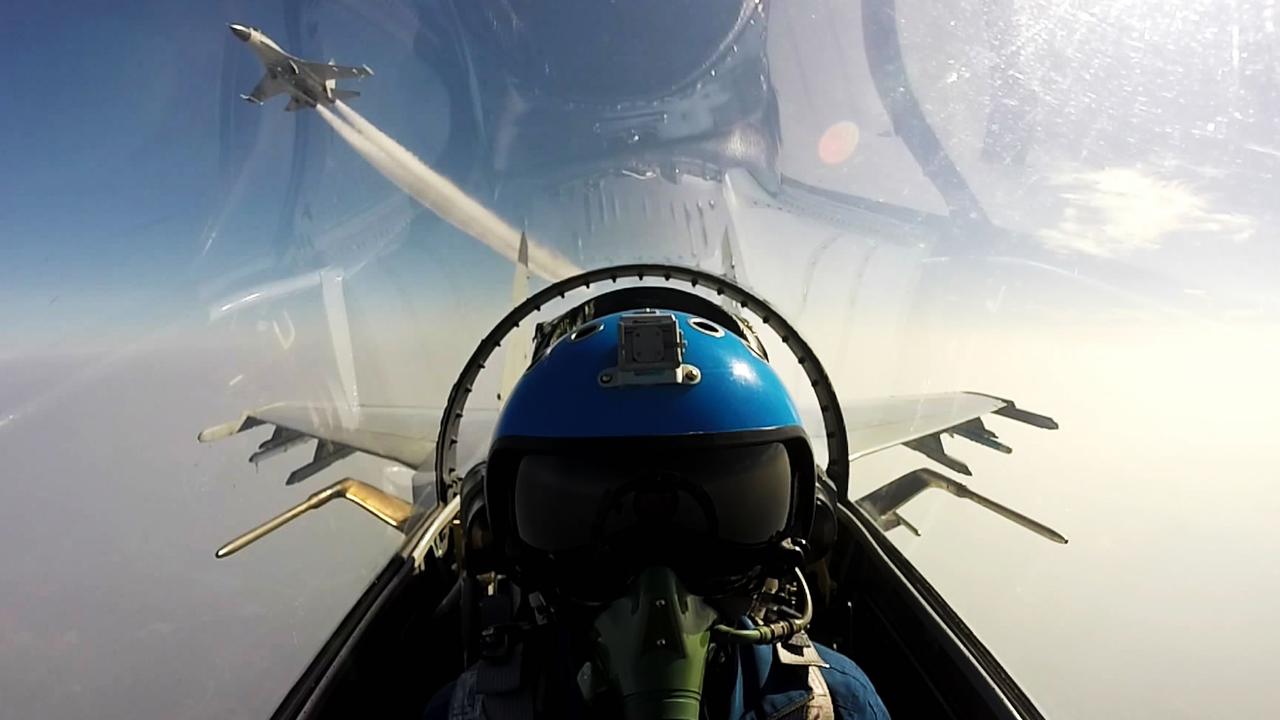

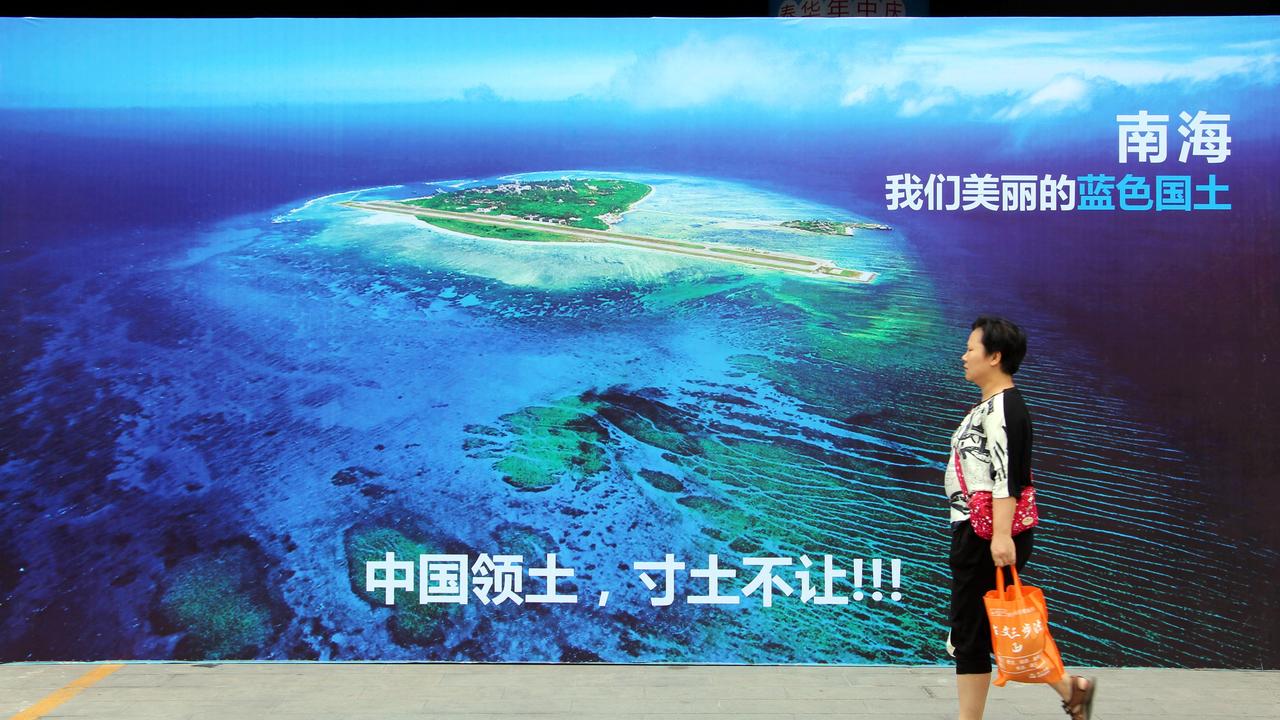
Add your comment to this story
To join the conversation, please log in. Don't have an account? Register
Join the conversation, you are commenting as Logout
Here’s what you can expect with tomorrow’s Parramatta weather
As summer moves towards autumn what can locals expect tomorrow? We have the latest word from the Weather Bureau.
Here’s what you can expect with tomorrow’s Parramatta weather
As summer moves towards autumn what can locals expect tomorrow? We have the latest word from the Weather Bureau.